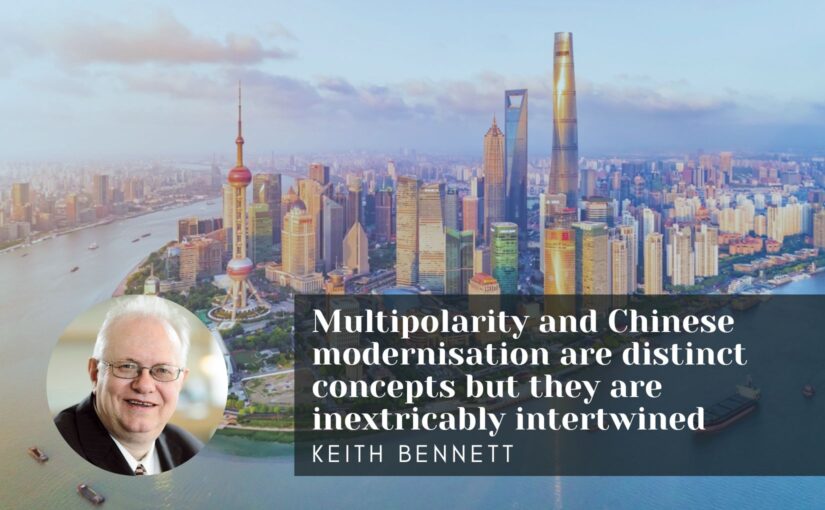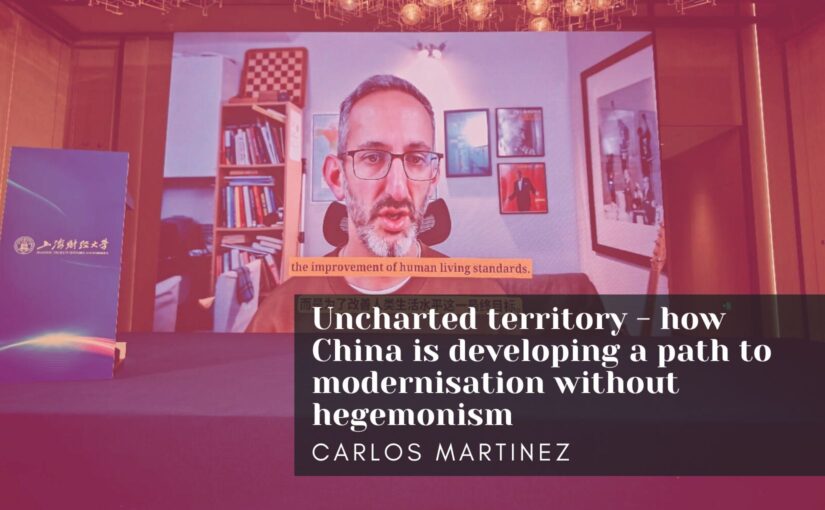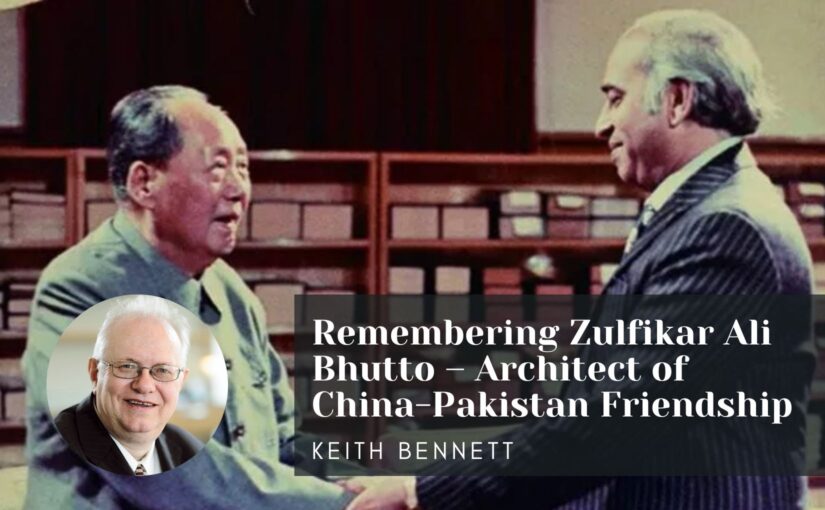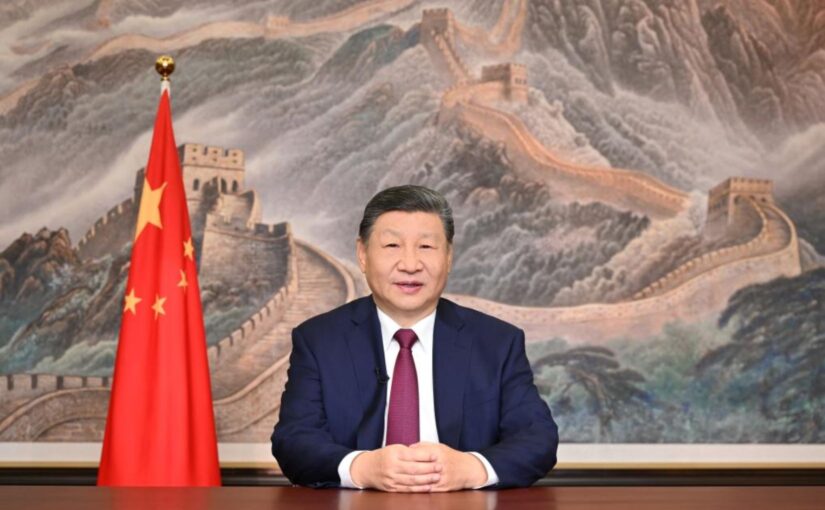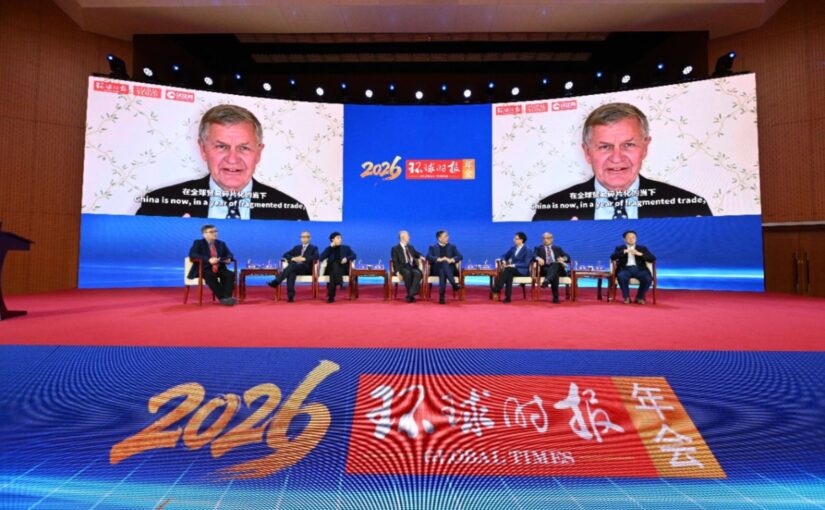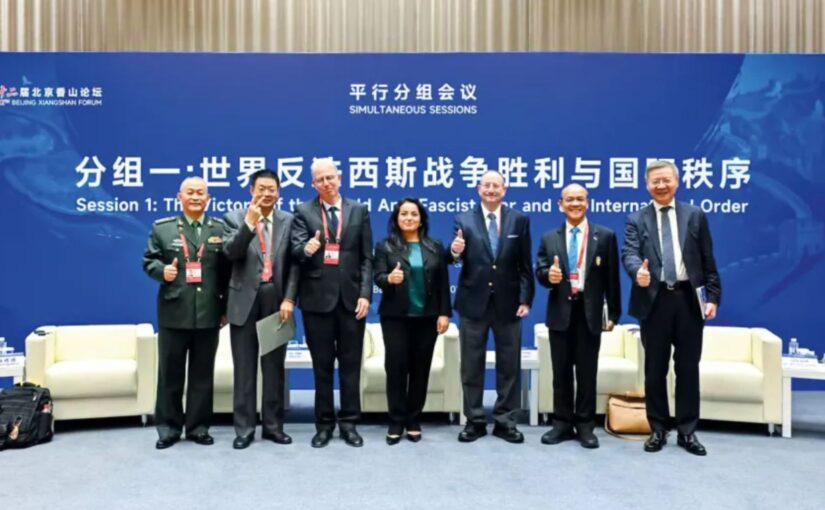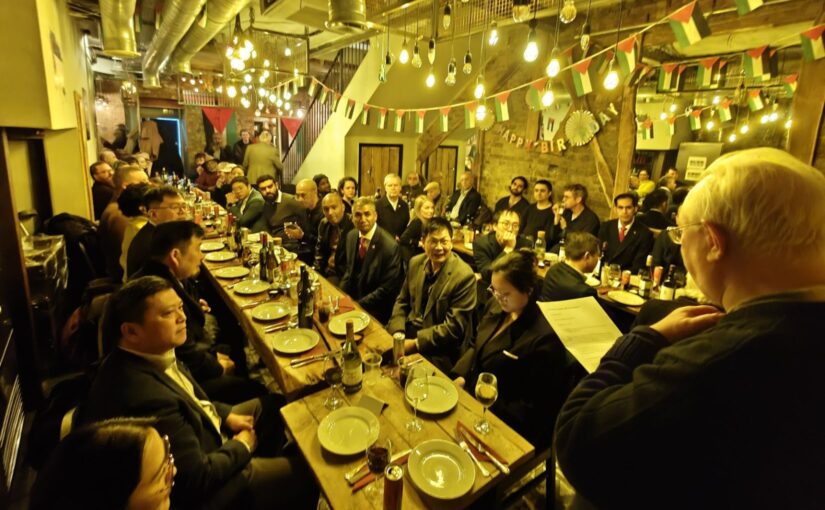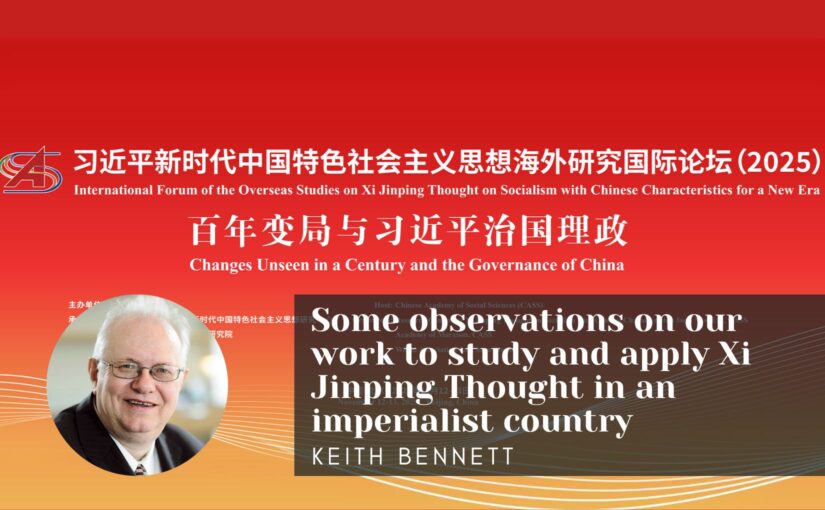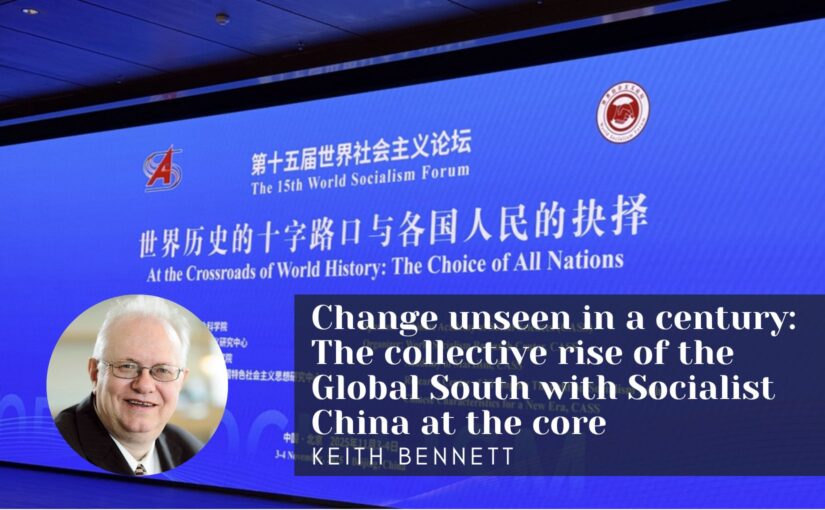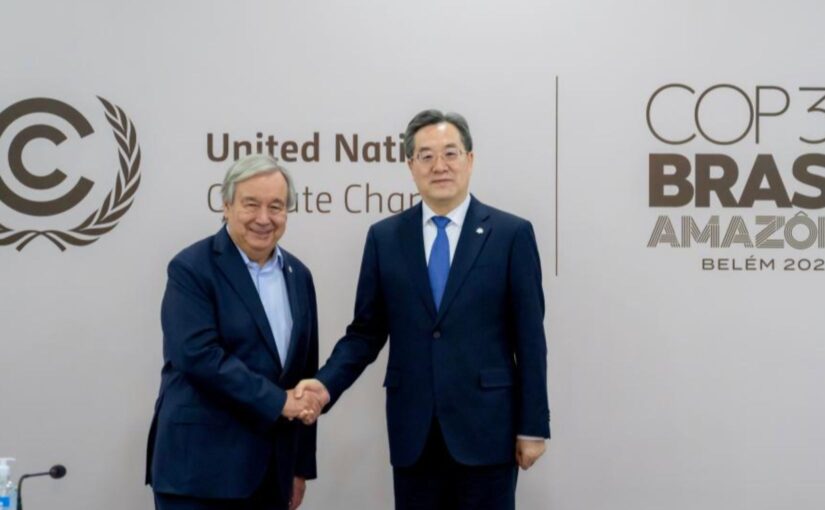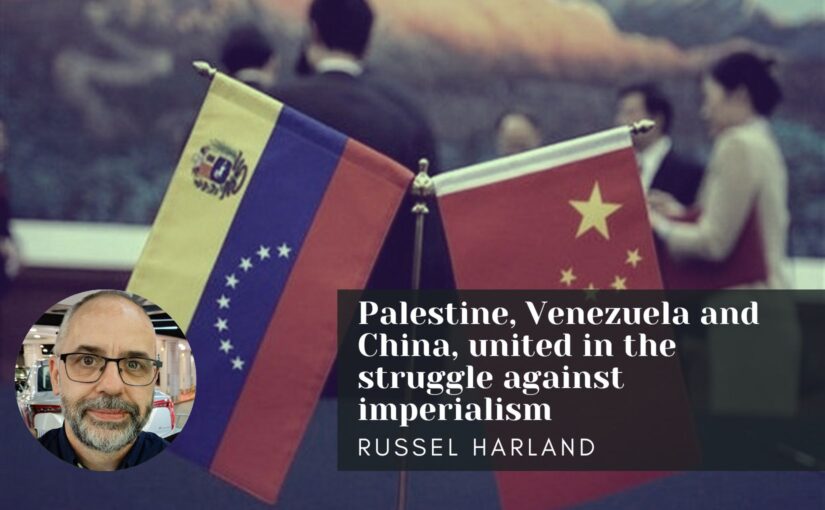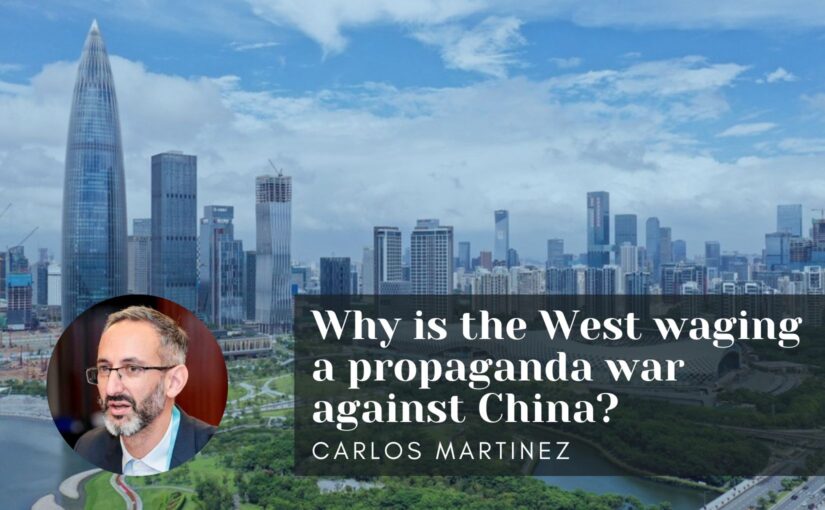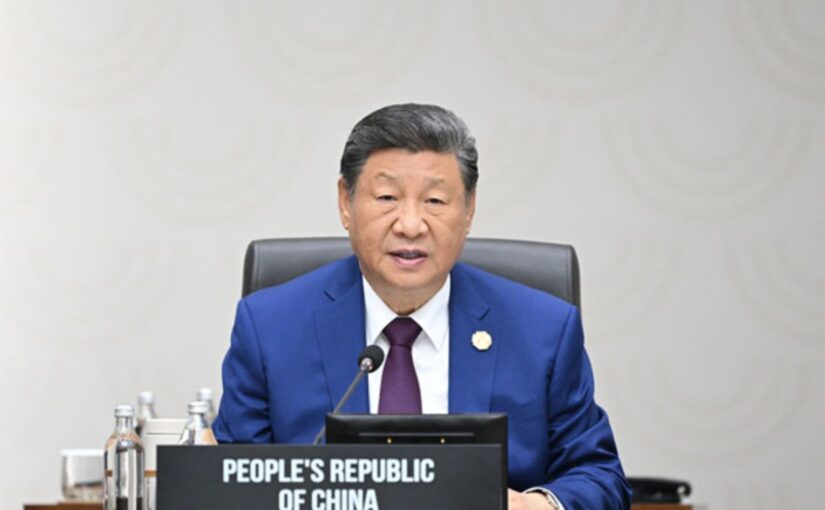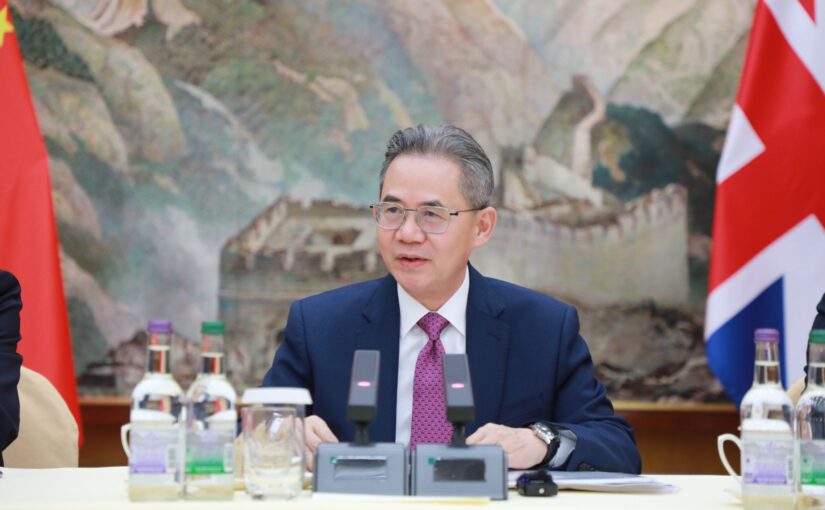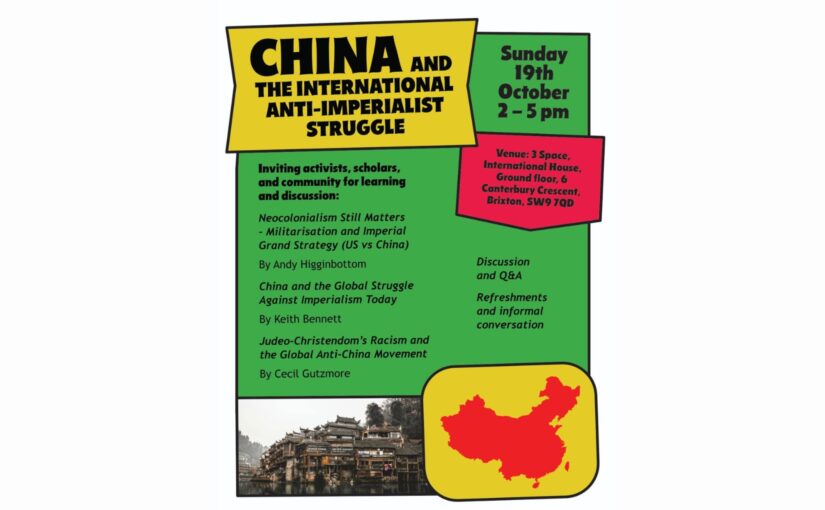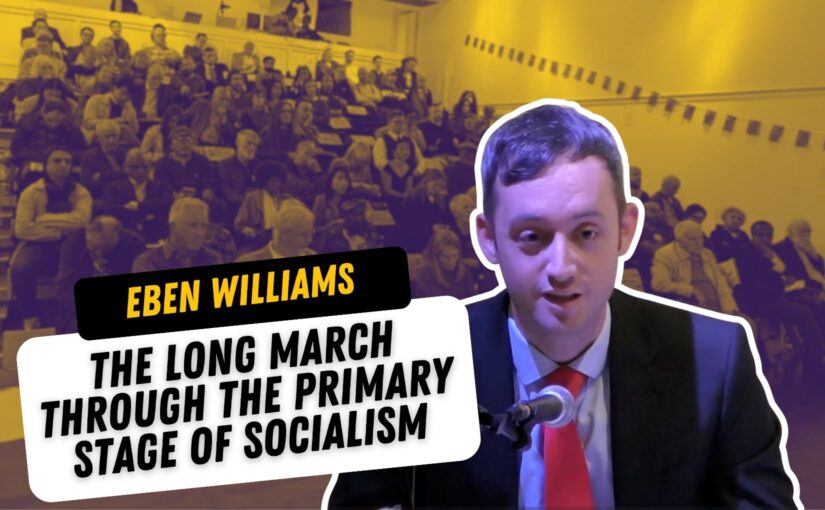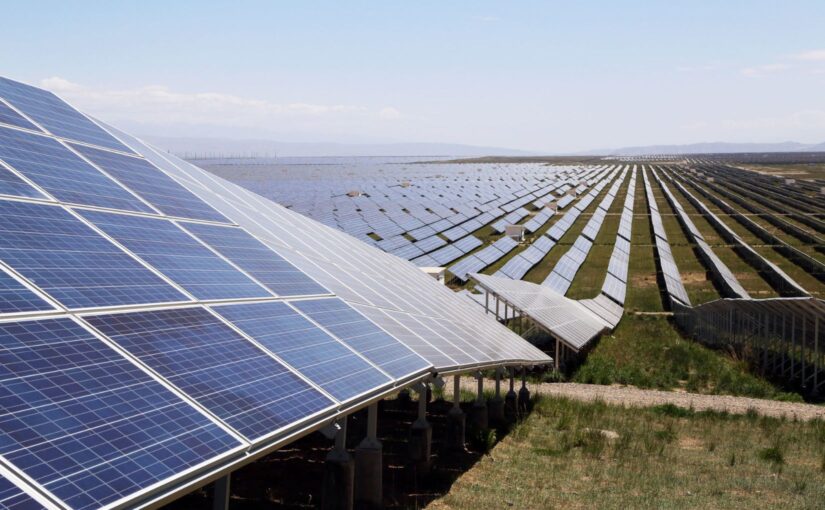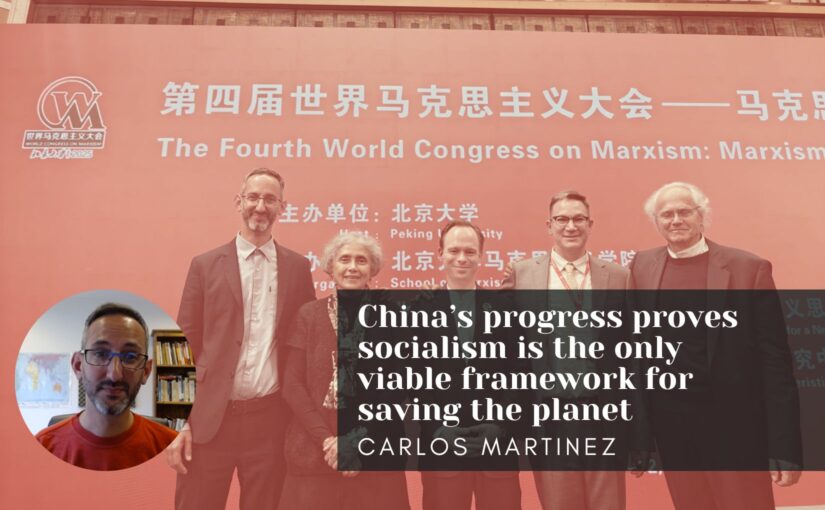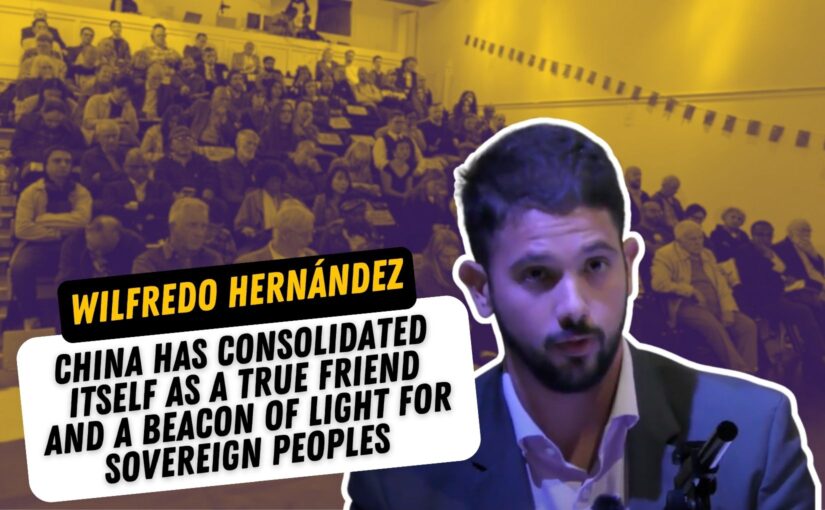As previously reported by us, an international forum on the theme of Multipolarity and Chinese Modernisation, hosted by the Shanghai University of Finance and Economics (SUFE), was held on 13 December 2025 in Shanghai. This conference brought together numerous scholars, authors and researchers from around the world to explore pathways toward a prosperous and multipolar future for humanity.
We print below the text of the speech to the conference by Friends of Socialist China co-editor Keith Bennett, which was delivered by video recording.
Keith’s speech stresses the interrelationship of multipolarity and Chinese modernisation in the context of President Xi Jinping’s thesis that the world is presently seeing changes unseen in a century.
Proceeding from Lenin’s 1923 observation that, “In the last analysis, the outcome of the struggle will be determined by the fact that Russia, India, China, etc., account for the overwhelming majority of the population of the globe. And during the past few years it is this majority that has been drawn into the struggle for emancipation with extraordinary rapidity… In this sense, the complete victory of socialism is fully and absolutely assured,” Keith notes how the progress of humanity over the ensuing century has conformed to that essential paradigm, such that quantitative increase is leading to qualitative change. “We are indeed witnessing the sun setting in the west and rising in the east and south.”
With bodies such as BRICS+ and the Shanghai Cooperation Organisation (SCO) in the forefront, “it is socialist China that is today the indispensable nation in driving the changes unseen in a century.”
Until now, Keith notes, modernisation has only been achieved by a minority of, overwhelmingly majority white, nations. In terms of scale alone, therefore, as China is home to some 22 per cent of the world’s population, China’s modernisation will more than double the percentage of humanity living in modernised societies. As such, it will profoundly change, and indeed revolutionise, global society, economy and culture, and hence the prospects and possibilities for those nations and peoples still facing the tasks of development and modernisation.
Therefore, socialism with Chinese characteristics offers a new option for other countries and nations who want to speed up their development while preserving their independence.
I would like to express my thanks to the Shanghai University of Finance and Economics for their kind invitation to participate in this important international forum and regret not being able to join you in person.
Multipolarity and Chinese moderniation are distinct concepts but they are inextricably intertwined.
General Secretary Xi Jinping often reminds us that we are living in a moment of history where we are witnessing changes unseen in a century.
This statement has applicability and relevance across a range of events and numerous spheres of human endeavour. But perhaps it does not express itself quite so cogently, or with such profound import, as it does with regard to both the tectonic changes in the world’s geopolitical configuration, and the accompanying evolution and reform of global governance, and the long march of more than 1.4 billion Chinese people towards a modernisation of their own style.
In his last published article, ‘Better Fewer, But Better’, Lenin insisted that:
“In the last analysis, the outcome of the struggle will be determined by the fact that Russia, India, China, etc., account for the overwhelming majority of the population of the globe. And during the past few years it is this majority that has been drawn into the struggle for emancipation with extraordinary rapidity, so that in this respect there cannot be the slightest doubt what the final outcome of the world struggle will be. In this sense, the complete victory of socialism is fully and absolutely assured.”
The ensuing century since Lenin wrote these words has seen a whole number of momentous events and trends that include the Chinese people’s victory in the war of resistance against Japanese aggression, the world peoples’ victory in the global anti-fascist war, the founding of the United Nations, the triumph of the Chinese revolution and the founding of the People’s Republic, and the independence of India and the other countries of South Asia.
Continue reading Multipolarity and Chinese modernisation are distinct concepts but they are inextricably intertwined